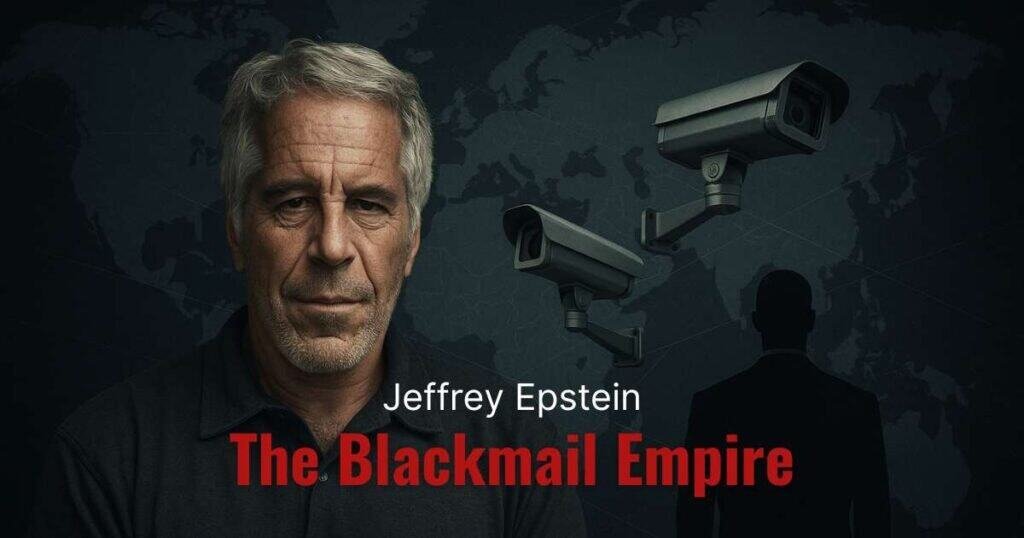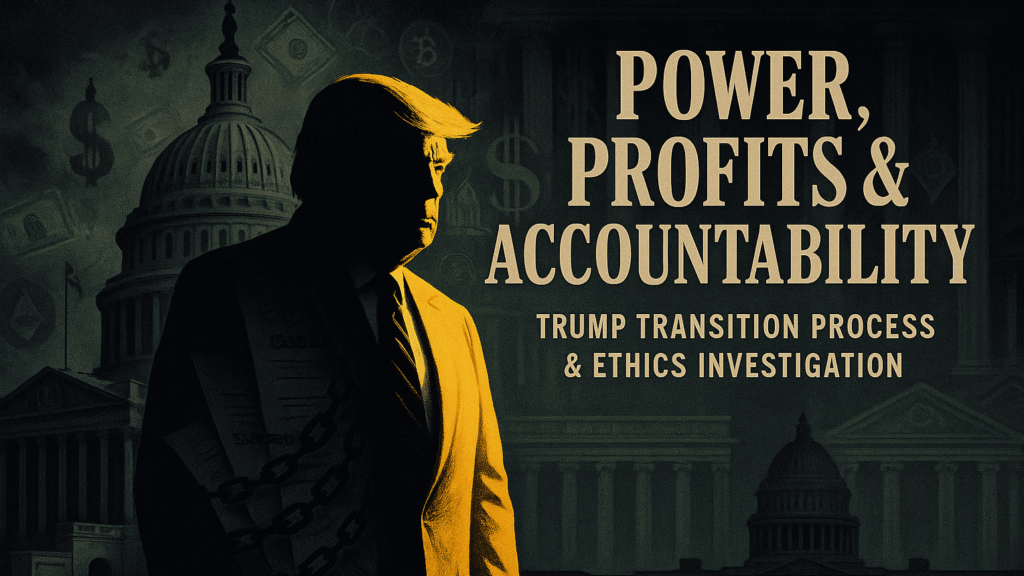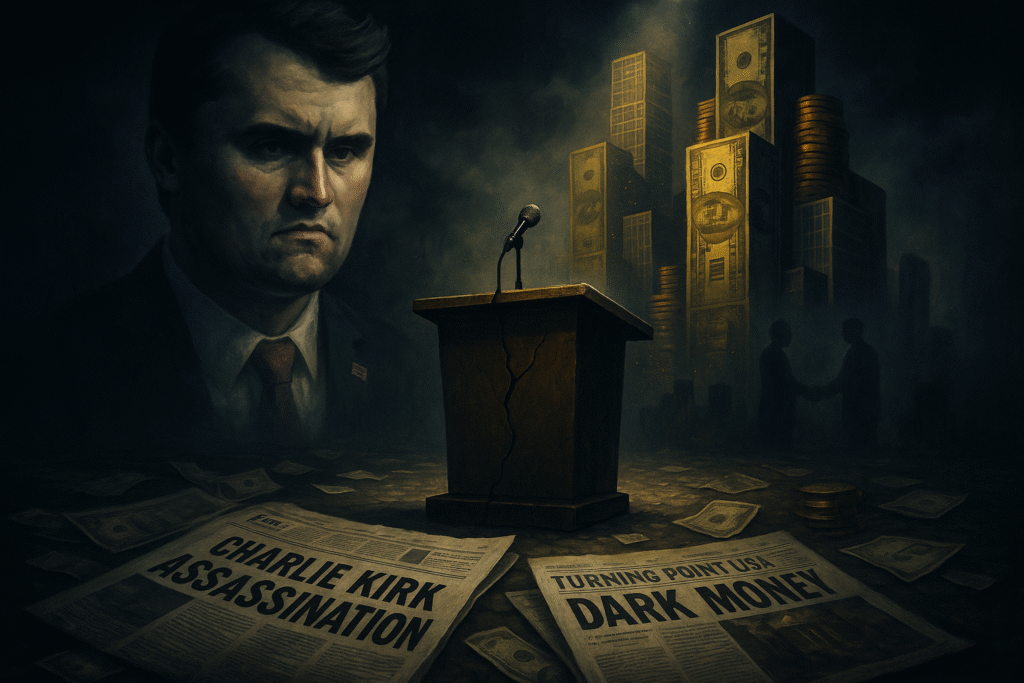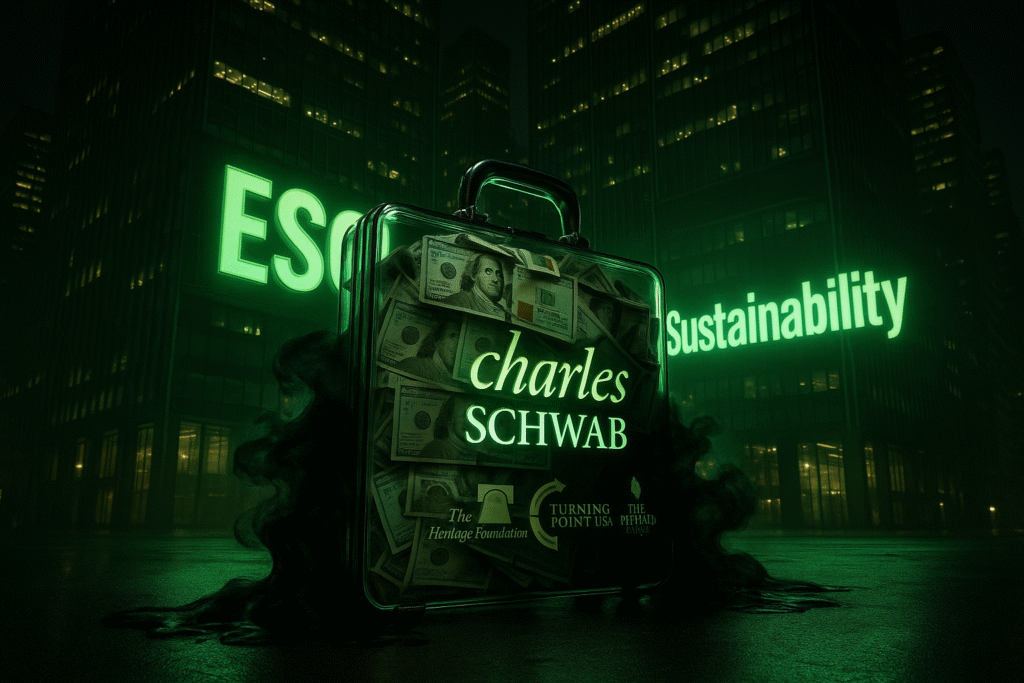Jeffrey Epstein Blackmail Empire: Global Network of Obedience Uncovered
1. Not for Pleasure—But for Power
What if the scandal was never really about sex?
Behind the billion-dollar lifestyle, Jeffrey Epstein’s true weapon wasn’t seduction, it was control, constructed meticulously through shame, surveillance, and silence.
Beyond the lurid tales of exploitation, Epstein’s private islands and opulent residences weren’t just playgrounds, they were traps. He engineered a sophisticated “network of obedience”, turning luxury into leverage, and hidden cameras into weapons of power. This wasn’t a life of indulgence, it was an empire of blackmail.
But if power was the goal… just how deep did Jeffrey Epstein’s blackmail empire run?
2. Secrets as Weapons
Imagine a world where secrets buy silence and loyalty.
Jeffrey Epstein didn’t chase influence through traditional means. He built an arsenal out of personal shame and dirty secrets, trading them like currency within the global elite.
According to victim testimonies and leaked reports, his jet, infamously known as the Lolita Express, wasn’t just transportation. It was a vessel for gathering intel and exploiting the vulnerable. His homes in New York and Florida acted as fortified stages for a chilling performance: power disguised as pleasure, and silence bought through blackmail. Epstein didn’t just collect secrets, he weaponized them, securing dominance through a calculated Epstein leverage system.
And the scariest part? Every secret he held gave him control over another powerful player.
3. Psychological Prison Houses
Some prisons don’t have bars, they’re built on fear and guilt.
Epstein’s system didn’t just rely on physical entrapment. His methods penetrated the mind. Victims were emotionally conditioned, coerced into silence with psychological manipulation far stronger than chains.
Behind closed doors, with the help of co-conspirators protected under a controversial non-prosecution agreement (NPA), he created a fortress of obedience. That agreement even stated “the United States” would not prosecute others involved. Ghislaine Maxwell, later convicted for her role in trafficking minors, was key to this web.
The psychological walls were thick. The longer they stayed silent, the harder it became to speak.
And every layer of silence made the “Jeffrey Epstein blackmail” network stronger.
4. A Promise That Haunted the Courtroom
What if justice itself was bound by a shadowy promise?
When Maxwell challenged her prosecution, her legal team pointed to Epstein’s deal with the U.S. Attorney’s Office in Florida. Since the deal involved “the United States”, could it not shield her from charges in New York?
The Second Circuit didn’t think so. On September 17, 2024, they upheld her conviction, ruling the deal wasn’t binding on the Southern District of New York. But this exposed a deeper issue, how different federal courts interpret national promises inconsistently. Maxwell’s team now seeks justice from the Supreme Court, arguing the deal should have applied across the board.
But in a system where promises are murky, whose justice really prevails?
5. A Legal Loophole with National Consequences
Could one deal rewrite how American justice works?
Maxwell’s team contends that the ruling defies prior precedent, including Santobello v. New York. They argue that when a federal prosecutor says “the United States” makes a promise, it should bind all jurisdictions, not just one.
The stakes are massive. The Supreme Court has yet to rule, and the government has delayed its response until July 14, 2025. If Maxwell wins, the precedent could forever alter how non-prosecution agreements are understood and enforced nationwide.
One decision could break the very foundation of the Epstein leverage system.
6. The Suicide That Sparked a Storm
What if the system failed just when the truth was close?
Epstein’s death inside the Metropolitan Correctional Center was ruled a suicide. But almost no one believed it. The phrase “Epstein didn’t kill himself” quickly gained traction online and off.
The DOJ’s Inspector General uncovered disturbing lapses: failed cameras, missing footage, unmanned guards, and ignored suicide protocols. His cell was dark, literally and figuratively. The hard drives were corrupt, and guards failed to check on him during critical hours.
What should have been a secure prison turned into the perfect stage for silence.
7. The Game Isn’t Over
If Epstein is gone, why are so many still nervous?
In his final moments, Epstein requested a call to his deceased mother—yet was granted a call to “Individual 1” in Belarus. The call wasn’t recorded. The contact refused interviews. Meanwhile, excessive linens, a known suicide risk, were left in his cell.
As the Bureau of Prisons is scrutinized, survivors, activists, and legal experts continue exposing what they call a “two-tiered system of criminal justice”, one that favors the elite. And though Epstein’s islands are now being transformed into resorts, the paper trails, tapes, and testimonies left behind are beginning to surface.
Flight logs, FBI notes, sealed depositions, some of it is already public. But the most powerful names remain in the shadows.
Because when the “Jeffrey Epstein blackmail” game begins to crack, the world might finally see who really played it.
Explore More
Trump Transition Process and Ethics Battles: Power, Profits, and Accountability
The corridors of power are rarely transparent. They are shaped by promises made in public,…
The Shocking Truth Behind Charlie Kirk and Turning Point USA’s $250 Million Conservative Empire
The Charlie Kirk assassination on September 10, 2025, during a campus event at Utah Valley…
Charles Schwab and the $171 Million Secret Behind Wall Street’s ESG Facade
How Charles Schwab and other financial giants bankroll climate denial while selling sustainability to investors?…
Do Foreigners Pay for Tariffs? The Truth About Who Really Bears the Cost
When President Donald Trump unveiled his “America First” trade policy, tariffs were marketed as the…
Did Trump’s Tweet Make Charles Schwab $2.5 Billion Richer?
A cryptic three-word tweet from Donald Trump “THIS IS A GREAT TIME TO BUY!!!” sent…
The Files They Buried: How the Jeffrey Epstein Case Exposes a Broken Justice System
What if the truth was never lost, just buried? Years after Jeffrey Epstein’s shocking death,…








Informative!!!
Horror story Explained in simple words.
The complicated network and layers , explained soo welll.
Good one